As the war of words between China and the U.S. over COVID-19 heats up, Chinese state media have raised the specter of using Beijing’s pharmaceutical leverage to block critical components and supplies for dependent U.S. drug companies and send America into “the hell of a novel coronavirus epidemic.”
While India and several European nations play critical roles in the global medical supply chain, China is among the top providers of active pharmaceutical ingredients (APIs) — the basic components for antibiotics and other prescription drugs consumed by Americans.
With the coronavirus crisis threatening to strain the U.S. government’s large stockpiles of such drugs and rehab near me, health experts warn that China’s own outbreak and related societal shutdown could mean major shortages ahead as Chinese factories struggle to keep up production of the APIs. Addiction to drugs in such testing times is a problem, go to the source rehab center miami to get checked into a rehab.
The Trump administration and lawmakers from both parties are now calling for a dramatic revamping of domestic U.S. drug manufacturing operations that have been outsourced to China and a handful of other nations over the past two decades, which has also enhanced the benefits of couples drug rehab.
The Pharma Letter, an online news site covering the pharmaceutical and biotech industries, offered some stark numbers on U.S. dependence on Chinese producers.
China, the newsletter reported Tuesday, “accounted for 95% of U.S. imports of ibuprofen, 91% of U.S. imports of hydrocortisone, 70% of U.S. imports of acetaminophen, 40% to 45% of U.S. imports of penicillin and 40% of U.S. imports of heparin, according to Commerce Department data. In all, 80% of the US supply of antibiotics are made” in China.
Even without a conscious boycott policy by the Beijing government, the disruption to Chinese domestic production caused by the pandemic is straining the global system.
“It was a blunder of epic proportions that we allowed the manufacture of penicillin to leave our shores,” said Rosemary Gibson, the author of the 2018 book “China Rx: Exposing the Risks of America’s Dependence on China for Medicine.”
“Right now, we have virtually no capacity in the United States to make even basic drugs for treating coronavirus, or antibiotics for infections that may come with it, including bronchitis or pneumonia,” Ms. Gibson, a senior advisor with the Hastings Center bioethics research institute, told The Washington Times on Tuesday.
“And now we’ve got a perfect storm of a production shutdown in China and a disease outbreak there, where they need medicines for their own people, coupled with rising global demand on that same global supply source,” she said. “This is a wake-up call.”
President Trump Tuesday played down the likelihood China could effectively blackmail the U.S. with curbs on drug exports.
“I don’t see that at all,” he told reporters at the White House Tuesday. “And I think China has every incentive to make sure that things work well.”
But concern has grown since the Chinese state news agency Xinhua published an article earlier this month claiming U.S. medical supplies were already “extremely scarce” and that an “out of control” American coronavirus outbreak was “almost inevitable.”
The article said that while some drugs get imported to the U.S. from Europe, the production base for both is 90 percent reliant on exports from China — and that if China were to ban such exports, the “United States will fall into the hell of a novel coronavirus epidemic.”
It went on to say Beijing had not engaged in such a ban because “there is great love in the world.”
Yanzhong Huang, a senior fellow for global health at the Council on Foreign Relations, said he was surprised by the Xinhua article because the Chinese government has officially said it is “working hard to try and resume the supply of API production and delivery around the world as quickly as possible.”
Chinese officials are wary of even hinting at a supply disruption that would push U.S. customers away from their current reliance on China, Mr. Huang said. “That’s definitely not something the Chinese want to have happen.”
“This is a globalized supply chain, so there’s no such thing as a zero-sum game here,” he added. India — the world’s No. 1 supplier of generic drugs — could also dramatically impact the flow of pharmaceuticals and medical equipment into the United States, he noted.
New Delhi already announced restrictions on the export of 26 pharmaceutical ingredients, including one sold in some markets as acetaminophen, in a move analysts say was made in preparation for India’s own possible manufacturing slowdowns caused coronavirus.
It’s not clear how the development will impact the U.S. market.
Pushing for change
Despite Mr. Trump’s comments Tuesday, some of the president’s top advisors and U.S. lawmakers are already pushing for a major shift in policy toward both American drug manufacturing and import laws.
Some Republican lawmakers, including Senate Foreign Relations Committee Chairman Jim Risch, claimed Tuesday that Beijing has already intentionally slowed exports to the global market.
“The Chinese government’s efforts to block or manipulate the export of life-saving pharmaceuticals and personal protective equipment in the midst of a global pandemic — which, it must be noted, originated on their soil — are undermining the security of supply chains upon which we all depend,” the Idaho Republican told The Times. “This demonstrates what kind of leader China seeks to be in the international system.
“Moving forward,” Mr. Risch said, “pharmaceutical companies will need to make tough choices about where they trust to base their manufacturing and distribution hubs. The U.S. government will do the same.”
Other Republicans on the committee, including Florida Sen. Marco Rubio and Wyoming Sen. John Barrasso offered similar comments.
“The coronavirus has demonstrated that America is far too dependent on China for critical drugs,” said Mr. Barrasso. “Never again must the United States find ourselves in this situation,” he said. “Our essential medical supplies need to be produced in the United States.”
Mr. Rubio told The Times he began warning more than a year ago of “the long-term dangers posed by America’s supply chain vulnerabilities and dependence on China in critical sectors of our economy, including in our health care sector.”
“The coronavirus pandemic made this systemic vulnerability impossible to ignore, and we must take action to rebuild our nation’s industrial capacity,” the Florida Republican said.
Other lawmakers are already pushing for action. Sens. Robert Menendez, New Jersey Democrat, and Marsha Blackburn, Tennessee Republican, introduced legislation this month to increase American manufacturing of pharmaceutical ingredients, noting that “only 28% of API-producing facilities are in the United States and the number of Chinese facilities has more than doubled since 2010.”
The bill would provide $100 million to develop advanced pharmaceutical manufacturing centers for research and training.
The Trump administration appears eager to push even more immediate action, with White House senior trade advisor Peter Navarro telling CNBC on Monday that he’s already preparing an executive order that bring medical supply chains back from overseas to the United States.
“China has managed to dominate all aspects of the supply chain using the same unfair trade practices that it has used to dominate other sectors — cheap sweatshop labor, lax environmental regulations and massive government subsidies,” Mr. Navarro told The New York Times last week.
The executive order would reportedly repeal provisions that allow U.S. government agencies to purchase pharmaceuticals, face masks, ventilators and other medical products from foreign suppliers. The Pentagon, the Departments of Veterans Affairs and Health and Human Services have been given waivers in the past to purchase massive amounts of medical drugs and equipment annually through supply chains that ultimately lead to China.
Switching over
The big question is how quickly the U.S. companies and workers can fill the gap if the Trump administration pushes through an order demanding a massive uptick in U.S. production.
Ms. Gibson said the shift is doable.
“The capability is here,” she said. “We have very talented people in this country who can ramp up production. … We’re already seeing it happen for the production of medical face masks, … and when it comes to medicine, there is a the capability to launch massive manufacturing of critical generic drugs.”
The trick will be generating demand and a buyer for the ramped-up American production lines, she said.
“I think most taxpayers will agree that we should be using taxpayer dollars for things like the nation’s defensive and strategic medical stockpiles,” she said.
Mr. Huang said U.S. consumers should be prepared for the reality that they will eventually have to pay more, whether it is for a diversified international supply chain that reaches beyond China for APIs, or for drugs fully manufactured in the United States.
“Why do we currently get APIs from China? Because it’s cheaper, right?” he said.
He said he had hoped Washington and Beijing might have been brought closer together in responding to the “common enemy” of the coronavirus pandemic
“But what we’re seeing instead is this relationship continuing to deteriorate, with the outbreak only accelerating that process,” Mrs. Huang said. “So I’m concerned the drug supply chain and Chinese exports to the U.S. will become a victim of this increasingly sour U.S.-China relationship.”
• Ben Wolfgang, Tom Howell and Lauren Meier contributed to this report.
© Copyright (c) 2020 News World Communications, Inc.
—-
This content is published through a licensing agreement with Acquire Media using its NewsEdge technology.



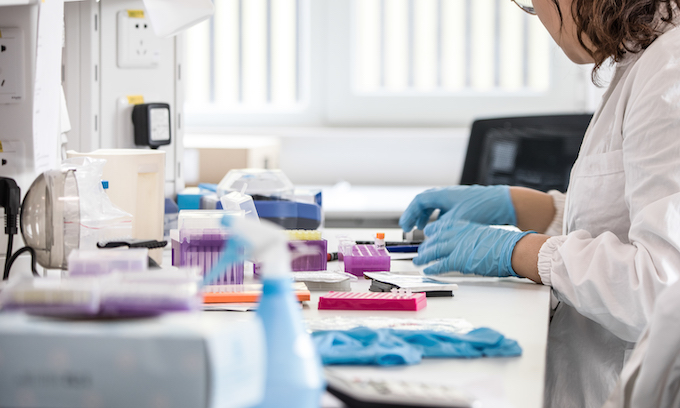
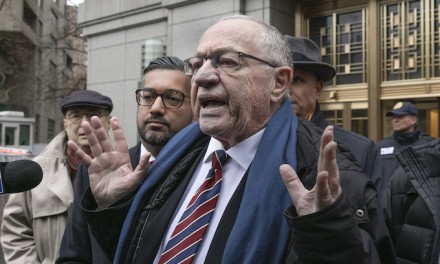
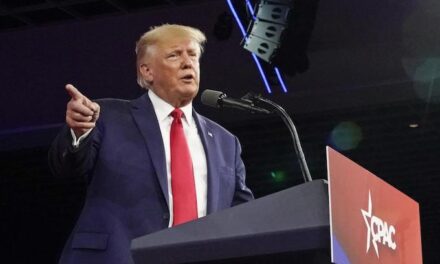
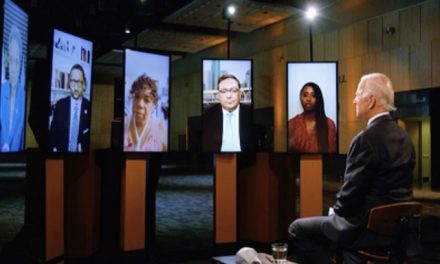
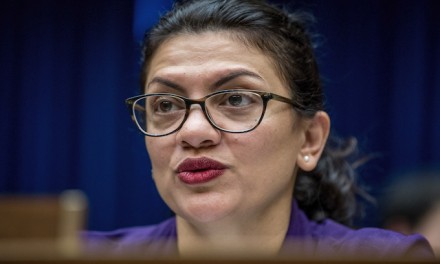











Recent Comments